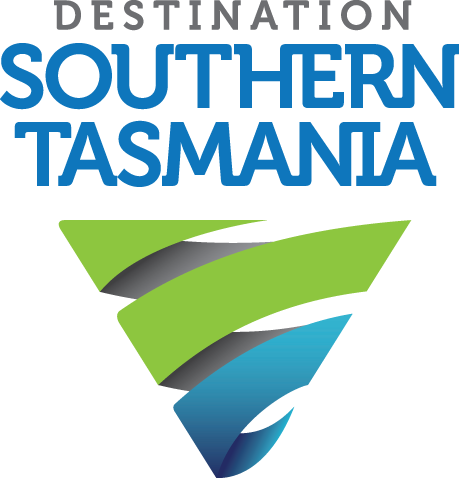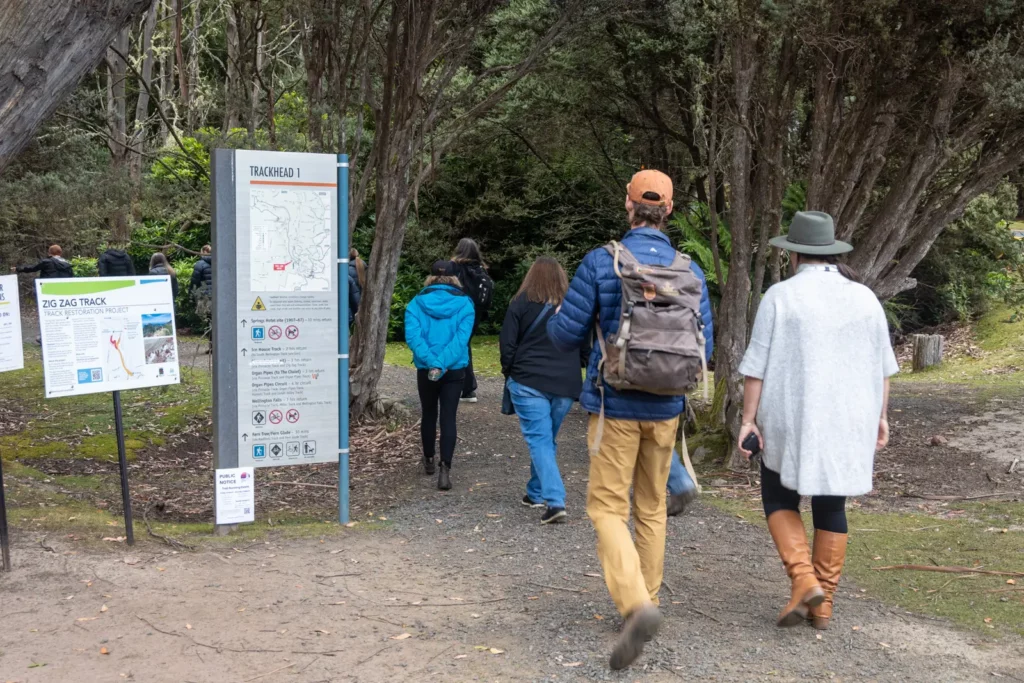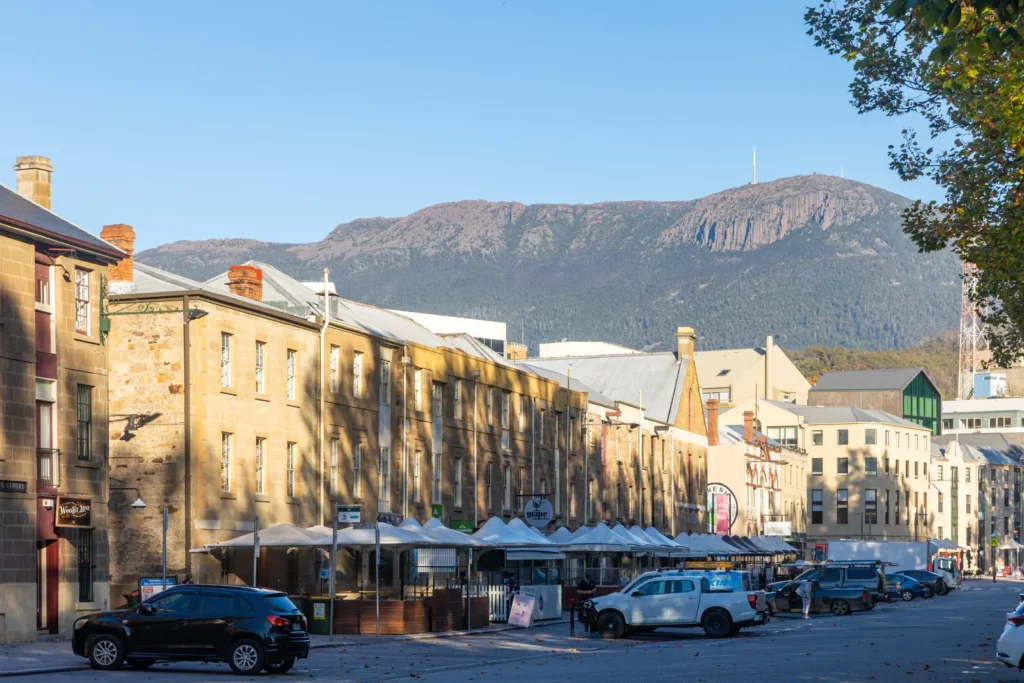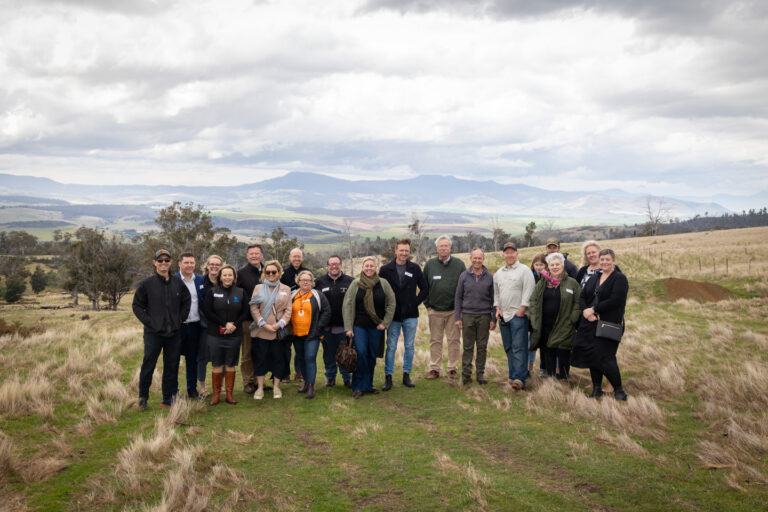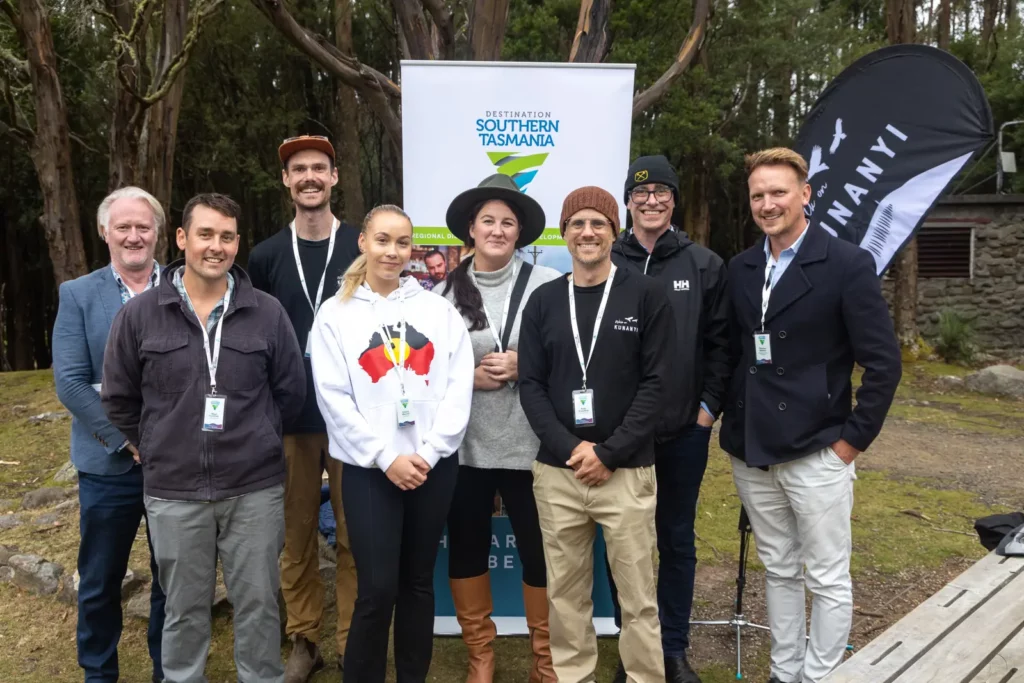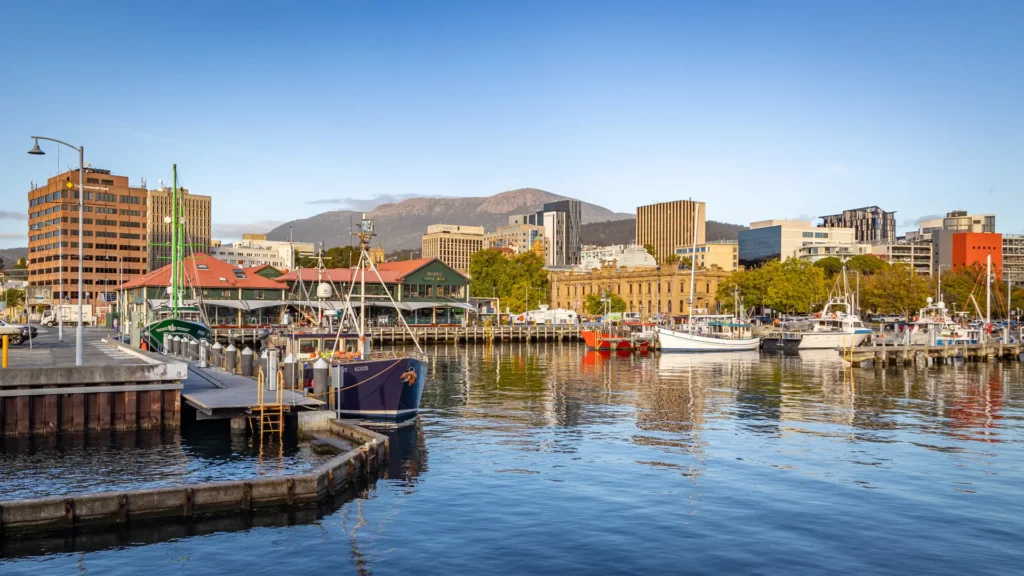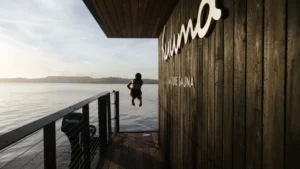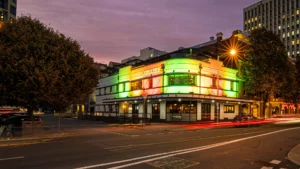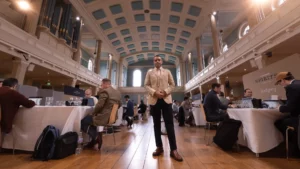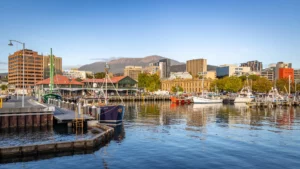Industry Workshop
Building an Accessible and Inclusive Tasmania
What would it look like to work together to create an inclusive state that truly welcomed everyone? As a business owner/event organiser, it is important to ensure as many people as possible can engage with your operations/events.
Events Tasmania and Consultant Morwenna Collett, recently ran a workshop to help operators understand more about how to appropriately consider people with disability in their work and how best to cater to different access requirements.
The following information has been provided by Events Tasmania and Morwenna Collett as the resources from the workshop.
Table of Contents
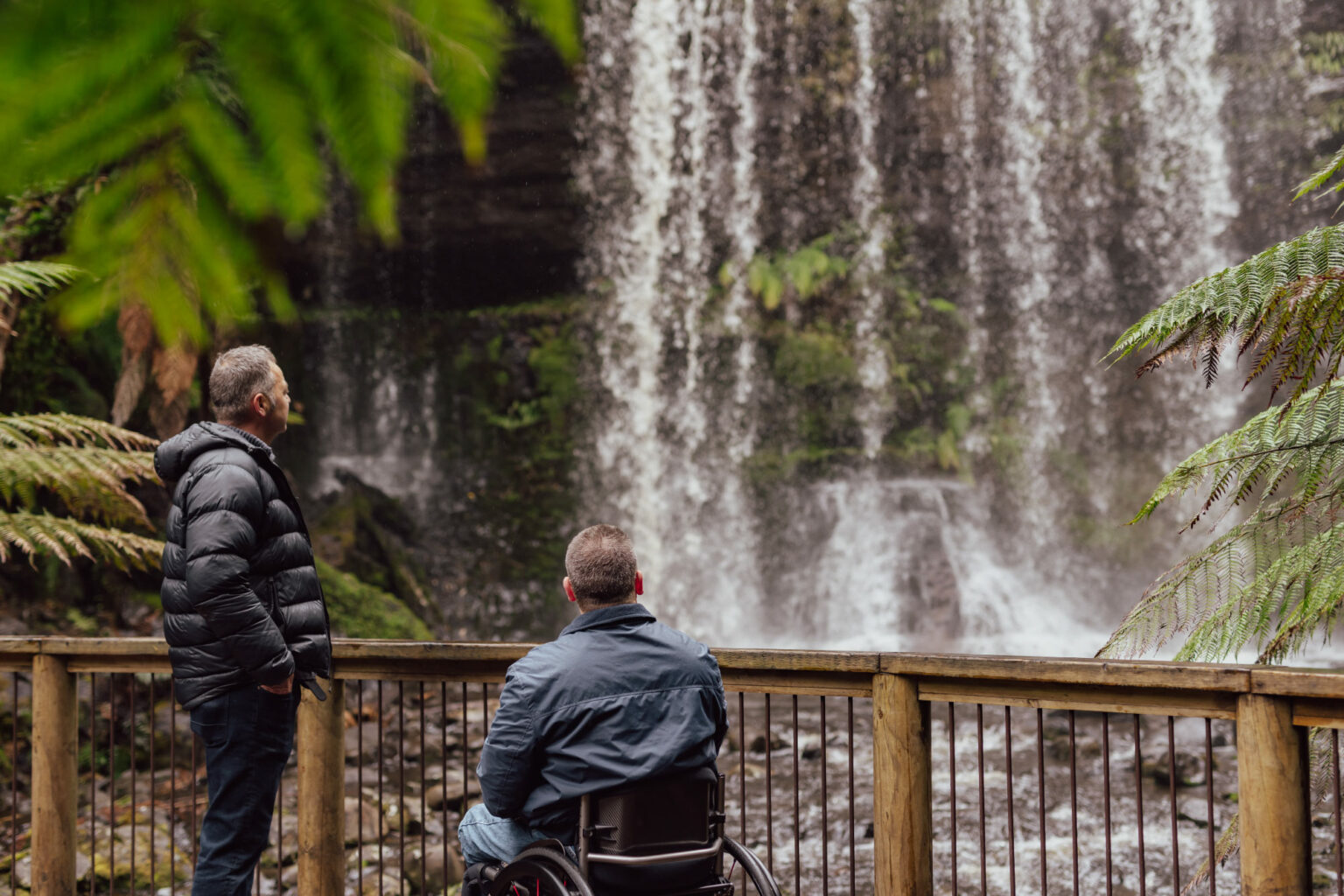
ACCESS AND INCLUSION RESOURCES
Below is a helpful toolkit with links to best practice guidelines, resources, language tips and service provider details. Use this toolkit as a starting point, to develop and add to over time.
Local and National Service Providers
Auslan interpretation |
Expressions Australia Hobart |
Michelle Czyzowicz / LinkedIn |
Auslan Stage Left Email: info@auslanstageleft.com.au Based in Victoria, but work nationally. |
Captioning |
The Captioning Studio (national, based in SA) |
AI Media (national, based in NSW) Website: https://www.ai-media.tv/ |
Redbee Media (national & international) |
Audio Description |
Olivia Bowman / LinkedIn |
Clare Spillman / LinkedIn Based in North West Tasmania |
Description Victoria |
Language
Words matter when it comes to talking about people with disability.
The language of disability changes quickly and different terms are used within and outside of Australia. It can be political, it can be very personal and can sometimes be quite confusing. But don’t panic! If you have good intentions and treat everyone with respect, you’ll get by.
Remember, what is acceptable for one person with disability might not be acceptable for another. Where possible, ask the person how they like to be described. If in doubt, use person-first language or refer to that person by name.
When referring to people with disability:
- Reference a person’s disability only when it’s relevant
- Focus on the person, not the disability
- Use the word disability as an uncountable noun, e.g., person or people with disability, NOT person with a disability or people with disabilities.
More helpful language tips can be found in PWDA Language Guide and on the Access Arts Victoria website
What to say
Remember the first rule about disability language: Don’t panic! What you say isn’t as important as making the effort to say it. Here are some examples of words Accessible Arts recommends (and doesn’t recommend) using.
Words we recommend | Words we don’t recommend |
people / person with disability disabled person/people | person with a disability person with disabilities differently abled / disability ‘the’ Disabled handicapped physically challenged someone who can’t [hear, speak, walk, etc. victim special needs / impaired unfortunate / less fortunate |
people / person without disability non-disabled person able bodied person | normal |
wheelchair user | wheelchair bound bound / confined to a wheelchair |
Blind person / people person with low vision | the Blind person without sight |
d/Deaf person / people Auslan user hard of hearing | the Deaf deaf and dumb hearing impaired |
intellectual condition / disability learning disability learning difficulty | retarded / retard /backward special needs slow learner |
person of short stature | midget dwarf |
mental health condition mental health service user mental health system survivor | mental health problems mental / nuts / loonie mentally ill |
personal assistant / PA support worker access assistant | carer (unless a person with disability uses the term themselves) |
accessible toilet adapted toilet | disabled toilet handicapped toilet |
accessible parking blue badge parking | disabled parking handicapped parking |
has experiences | suffers from afflicted with |
how can we help? what can we do to […]? do you have any access requirements? is there anything we may have forgotten? | what’s your problem? what’s wrong with you? do you have a disability? why didn’t you bring it up earlier? |
Reclaiming language
Reclaiming, also known as reappropriation, is a process that is ongoing within marginalised groups, including but not limited to disabled people, LGBTQIA+ people, First Nations communities and people of colour. Reclamation is about taking back words and slurs that have previously been used to hurt, control and dehumanise marginalised groups. For some people within these groups, reclaiming terms like “crip” and “queer” is an act of taking away power from those insulting labels – giving those words a new meaning and removing its ability to cause harm.
As with any community, no everyone in these groups are comfortable and/or wishes to reclaim these words. It’s a personal decision that should be respected. If you are not a part of these groups, do not use these words, even if you have friends or relatives who do.
Helpful definitions
Definition of Disability
When we say we work with ‘people/person with disability’, we mean anyone with sensory or physical conditions, hidden conditions, learning disability or mental health conditions.
The Social Model of Disability
The Social Model of Disability makes a distinction between conditions (the condition, illness or loss/lack of function) and disability (barriers and discrimination). So we use the term ‘disability’ to refer to barriers, rather than medical conditions. The Social Model looks at the environment instead of individuals conditions, and gives us all power over things we can change.
Hidden Disability
The majority of people with disability cannot be easily identified as disabled just by looking at them. In fact, around 80-90% of people with disability have hidden or invisible conditions.
Hidden disability is just as important as visible disability and those who identify should never be dismissed based on what you can or can’t see. Never make assumptions about someone’s condition just because you cannot see it or because they don’t appear to live with a condition.
Some hidden disabilities include: Multiple Sclerosis, autism, arthritis, brain injuries, mental health conditions, diabetes, epilepsy, cognitive conditions, endometriosis, chronic pain and many more.
Etiquette: The Basics
Ask before you help
Just because someone has disability, don’t assume they need help. If the setting is accessible, people with disability can usually get around fine. Adults with disability want to be treated as independent people.
Be sensitive about physical contact
Some people with disability depend on their arms for balance. Grabbing them, even if your intention is to assist, could knock them off balance.
Avoid touching a person’s wheelchair, scooter or cane. People with disability consider their equipment part of their personal space.
Think before you speak
Always speak directly to the person with disability, not to the persons companion, aide or sign language interpreter. Making small talk with a person who has a disability is great; just talk as you would with anyone else. Respect people’s privacy. If you ask about a person’s disability, they may feel like you are treating them as a disability, not as a human being.
Respond graciously to requests
When people with disability ask for an accommodation at your business, it is not a complaint. It shows they feel comfortable enough in your establishment to ask for what they need. And if they get a positive response, they will probably come back again and tell their friends about the good service they received.
Don’t make assumptions
People with disability are the best judge of what they can or cannot do. Respect ‘No’ as an answer.
Practical tips
Below are some useful things to consider when working with different people with disability.
d/Deaf and Hard of Hearing
- Audio: Ensure hearing loops are working
- Lighting: Make sure there is enough light in the space for Auslan and lip reading
- Caption: Caption all videos
- Transcribe: Have transcripts available for videos
- Speak with nothing in front of your mouth, for those who might be lip-reading
Blind or low vision
- Budget: Include budget for audio description
- Tactile: Incorporate a tactile component on changing surface levels
- Sound: Make use of voice overs using speaker systems for locations
Cognitive and sensory disability
- Lighting: Ensure lighting changes are gradual and not harsh
- Sound: Ensure there is a quiet space people can go to if sound becomes too intense
- Language: Utilise Plain and Easy English versions of documents
- Speak slowly and clearly
Physical
- Space: Ensure clear pathways, entrances and exits
- Distance: talk in metres, not time
- Seating: Provide multiple seating options
Inclusive Festival examples
Australian festivals – disability specific
Australian festivals – inclusive mainstream
- Sydney Festival
- Perth Festival
- Tamworth Country Music Festival
- Melbourne Fringe Festival
- Rising
- Melbourne Comedy Festival
International festivals and agencies access pages
- Glastonbury Music Festival (UK)
- The Great Escape (UK)
- Edinburgh Fringe Festival (UK)
- Edinburgh International Festival (UK)
- Dadafest (UK)
- Unlimited(UK)
- Manchester International Festival (UK)
- Euan’s Guide (UK)
- Ten Fifty Entertainment (USA)
Resources
Morwenna’s checklists
- Online and on-site accessibility checklists – by Morwenna, available at https://www.morwennacollett.com/resources
Video resources
- Access to Live Music for Disabled Audiences: Glastonbury Festival & Band on the Wall – British Council Arts
- Image Descriptions with Carly Findlay
- Deaf Culture training with Jo Dunbar
- Radical Access Conversation series
Reports
- Building a musically inclusive future for Australian artists, participants and audiences – elements and success factors
2018 Churchill Fellowship Report by Morwenna Collett, which examined inclusive music programmes, venues and festivals which actively engage disabled people - State of Access Report – Attitude is Everything (UK)
Guidelines
- Accessible Events Guidelines – Tasmanian Government
- Inclusive and Accessible event guidelines – City of Sydney
- Guide to Accessible Festivals & Outdoor Events – Accessibility Services Canada
- Guide to making your show accessible – Edinburgh Fringe
- A Planning Guide for Making Temporary Events Accessible to People With Disabilities – ADA National network (USA)
- Guiding a person who is blind or has low vision – Vision Australia
- A Neurotypical’s guide to communicating with someone with Autism – Healthline
- DIY Access Guide – Attitude is Everything (UK)
- Access Starts Online – Attitude is Everything (UK)
National Access Tools
- Wave – Online accessibility checker (websites)
- Audio description and tactile tours: information available via Vision Australia
- Large print: books available via Random House
- Braille: Braille information technologies information available via Vision Australia. Publications can be found through the National Braille Reserve Collectionat the National Library of Australia
- Auslan interpretation: interpreters around Australia are available through Auslan Services
- Hearing augmentation: information available through Deafness Forum of Australia
- Captioning services: information available via Media Access Australia
- Easy English: information available through Scope’s Accessible Information Service
- Web Accessibility and Usability: guidelines for preparing accessible website content available through the Digital Transformation Office.
Toolkits and Checklists
- Toolkit for accessible and inclusive events – NSW Government
- Producers Guide to Access – Melbourne Fringe
- Accessible Temporary Events – Great Plains ADA Centre
- Inclusive Filmmaking toolkit – Bus Stop Films
- Resource Hub – Melbourne Fringe
- Accessibility in Public Events and Concerts Checklist – Disability Access Consultants
- Good Access is Good Business – City of Melbourne
Top Tips
- Ten tips to running accessible online events – Accessible Arts
- 7 inclusive principles for the arts – #WeShallNotBeRemoved (UK)
- How to make your gigs accessible and broaden your audience – APRA AMCOS
- Communication tips with someone who is Deaf or Hard of Hearing – Deaf Hearing Communication Centre
- Marketing your event to d/Deaf and disabled audiences – Melbourne Fringe
Other resources
- Attitude is Everything – offers a wealth of great resources and the whole website is worth delving into. Relevant highlights include The Charter of Best Practice (with associated toolkit)
- Checklists, templates, webinars and videos – Accessible Arts
- Free online Equalities Training – Edinburgh Fringe
- Hidden Disability Sunflower Program – Aspect
Disability advocates to follow on social media
Here’s a small sample to get you started:
- Carly Findlay
- Nina Tame
- Sinead Bourke
- Alice Wong
- Imani Barbarin
- Aaron Rose Philip
- Haben Girma
- Nyle DiMarco
- Haley Moss
- Emily Ladau
- Molly Bourke
Further assistance
This document has been developed by Morwenna Collett, an arts consultant specialising in access and inclusion – and who is a proud disabled person herself. Morwenna’s core business is working with arts and cultural organisations to help them be better when it comes to access and inclusion. She has worked with countless festivals and events on Access and Inclusion Plans and she is always happy to have a chat with you about your event.
Contact details can be found at https://www.morwennacollett.com/
